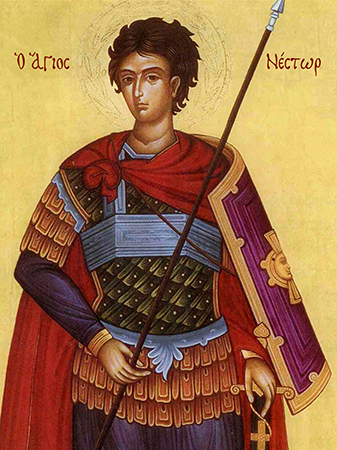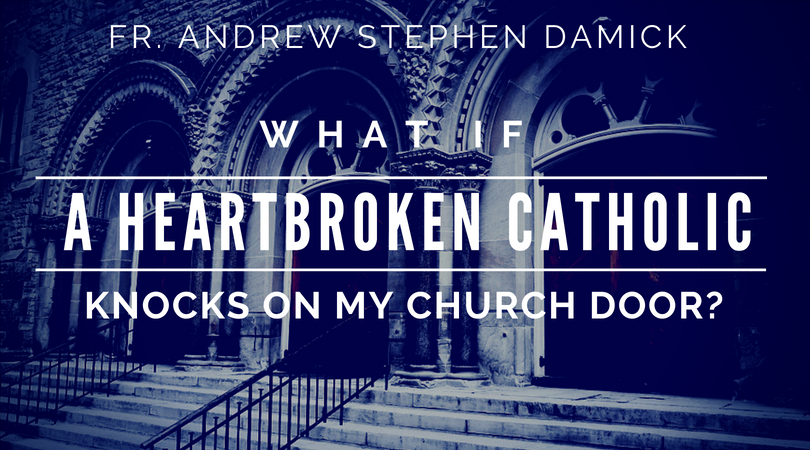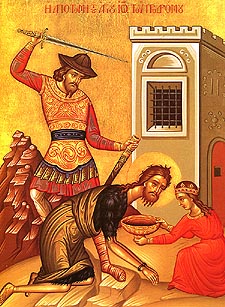Why Morality is Not Christian

I recall my first classes in Moral Theology some 35 or so years ago. The subject is an essential part of Western thought (particularly in the Catholic and Anglican traditions). In many ways the topic was like a journey into Law School. We learned various methods and principles on whose basis moral questions – questions of right and wrong – could be discussed and decided. These classes were also the introduction of certain strains of doubt for me.
The great problem with most moral thinking – is found in its fundamental questions:
- What does it mean to act morally?
- Why is moral better than immoral?
- Why is right better than wrong?
- To act morally is to act in obedience to the law or to God’s commandments.
- Moral is better than immoral because moral is a description of obedience to the good God. Or, moral is the description of doing the good, or even the greatest good for the greatest number (depending on your school of thought).
- Right is better than wrong for the same reasons as moral being better than immoral.
I will grant at the outset that many Christians are completely comfortable with the understanding that God rewards and punishes. I will grant as well that there is ample Scriptural evidence to which persons can point to support such a contention. However, this approach is far from a unanimous interpretation within the Tradition of the faith – and has little support within historic Eastern Orthodoxy.
That Scripture says such things (God is the punisher and rewarder) is undeniable – but there is also another strain of witness:
When James and John approached Christ after He had been turned away by a village of Samaritans, they said, “Lord, do You want us to command fire to come down from heaven and consume them, just as Elijah did?” But He turned and rebuked them, and said, “You do not know what manner of spirit you are of. “For the Son of Man did not come to destroy men’s lives but to save them.” And they went to another village. (Luk 9:54-56)If James and John were working out of a “reward and punishment” model (which they clearly were) Christ’s rebuke must have caught them by surprise. The same is true of many other encounters in Christ’s ministry. The interpretation brought by the fathers in all of this, is that God’s role as “punisher” is only an aspect of His role as “healer.” What we endure is not for our destruction and punishment but for our salvation and healing.
This takes everything into a different direction. It is, doubtless, an interpretation brought to the Old Testament from the revelation of Christ in the New. In Christ we see clearly what was only made known in “shadow” under the Old Covenant. Through Him, we now see more clearly.
God as Christ brings an entirely different set of questions to the moral equation:
- What does the Incarnation of God mean for human morality?
- What is at stake in our decisions about right and wrong?
- What does it mean to be moral?
Thus, our issues are not moral in nature (obeying things because they are right, etc.) but ontological in nature. The great choice of humanity is between union with God and His Life, or a movement towards non-being and emptiness. Our salvation is not a juridical matter – it is utterly ontological. The great promises in Christ point consistently in that direction.
I beseech you therefore, brethren, by the mercies of God, that you present your bodies a living sacrifice, holy, acceptable to God, which is your reasonable service. And do not be conformed to this world, but be transformed by the renewing of your mind, that you may prove what is that good and acceptable and perfect will of God. (Rom 12:1-2)
But we all, with unveiled face, beholding as in a mirror the glory of the Lord, are being transformed into the same image from glory to glory, just as by the Spirit of the Lord. (2Co 3:18-1)For it is the God who commanded light to shine out of darkness, who has shone in our hearts to give the light of the knowledge of the glory of God in the face of Jesus Christ. But we have this treasure in earthen vessels, that the excellence of the power may be of God and not of us. We are hard pressed on every side, yet not crushed; we are perplexed, but not in despair; persecuted, but not forsaken; struck down, but not destroyed–always carrying about in the body the dying of the Lord Jesus, that the life of Jesus also may be manifested in our body. For we who live are always delivered to death for Jesus’ sake, that the life of Jesus also may be manifested in our mortal flesh. So then death is working in us, but life in you. (2Co 4:6-12)
Such verses, which could be multiplied many times, point towards our salvation as a change that occurs within us, rather than a shift in our juridical status – having settled all our justice issues, etc. Rather, we are told that “God is working in us to will and to do of His good pleasure” (Phil. 2:13). Our salvation is nothing less than conformity with the image of God, a true communion of life and participation in the Divine Nature.
Juridical approaches obscure all of this. Concerns for justice quickly denigrate the faith into a cosmic law court (or penal system). Most problematically, the issues tend to be objectified and stand outside the life of believers. To be free of all legal issues that stand between ourselves and God is still far short of paradise. Our goal is to be transformed into union with Christ – to be healed of sin and to be made new. This requires a change within our inmost being – the establishment of the “true self” which is “hid with Christ in God.”
As for justice – it remains a mystery. Christ speaks of God rewarding one group of workers who labored only at the end of the day in a manner that was equal to those who had labored the entire day. The principle at work seems to be something other than a concern for justice (this is an example used by St. Isaac the Syrian).
Morality, as a systematic form of study, is a degeneration of true Christian teaching. Like secularism (and the two-storey universe) it can presume to discuss questions as though there were no God. Morality (and its ethical cousins) becomes a “science,” an abstract exercise of reason based (often) on principles that are merely assumed. The Scriptures tell us that there is “none good but God,” neither can there be anything good that does not proceed from God. The “good” actions that we make are actions that lead us deeper into union with Christ. Such actions begin in God, are empowered by God, and lead to God. “Morality” is fiction, at least as it has come to be treated in modern thought.
The sin that infects our lives and produces evil actions is a mortal illness (death). Only union with the true life in Christ can heal this, transform us and birth us into the true life which is ours in Christ.
As I have stated on numerous occasions: Christ did not die in order to make bad men good – he died in order to make dead men live.
If my treatment of the word morality is disturbing – I ask your forgiveness. I hope this small piece is of use in considering the true nature of our life in Christ. One of my favorite stories from the Desert Fathers illustrates (obliquely) the difference between mere morality and a true ontological change.
+++
Abba Lot went to see Abba Joseph and said to him, “Abba as far as I can, I say my little office, I fast a little, I pray and meditate, I live in peace and as far as I can, I purify my thoughts. What else can I do?” then the old man stood up and stretched his hands towards heaven. His fingers became like ten lamps of fire and he said to him, “If you will, you can become all flame.”
Thanks to:

 The emperor›s favorite in these games was a Vandal by the name of Lyaeus, a man of Goliath-like size and strength. As the emperor›s gladiator, Lyaeus challenged men every day to single combat and slew them. Thus, the bloodthirsty Lyaeus amused the bloodthirsty, idolatrous Maximian. The emperor built a special stage for Lyaeus›s battles, similar to a threshing floor on pillars. Spears, points upward, were planted beneath this platform. When Lyaeus defeated someone in wrestling, he would throw him from the platform onto the forest of spears. The emperor and his pagan subjects cheered as some poor wretch writhed in torment on the spears until he died.
The emperor›s favorite in these games was a Vandal by the name of Lyaeus, a man of Goliath-like size and strength. As the emperor›s gladiator, Lyaeus challenged men every day to single combat and slew them. Thus, the bloodthirsty Lyaeus amused the bloodthirsty, idolatrous Maximian. The emperor built a special stage for Lyaeus›s battles, similar to a threshing floor on pillars. Spears, points upward, were planted beneath this platform. When Lyaeus defeated someone in wrestling, he would throw him from the platform onto the forest of spears. The emperor and his pagan subjects cheered as some poor wretch writhed in torment on the spears until he died.

